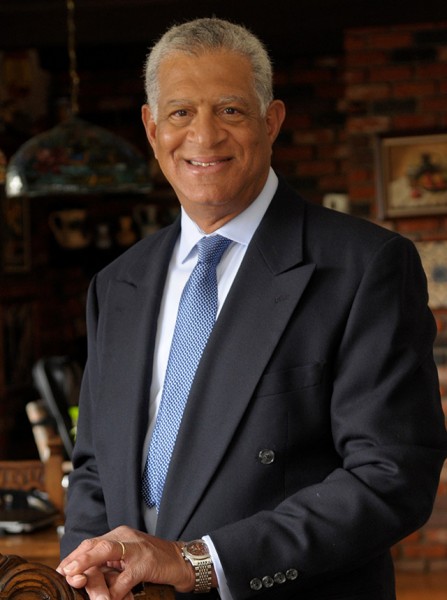 Alumni Spotlight
Alumni Spotlight
Daniel Cepin, MD ‘78
According to Daniel Cepin, MD ‘78, the biggest break of his career came in 1974 when he was accepted to Temple’s Medical School. “That was where everything changed,” he says. “That was where it all came together.”
Cepin’s childhood wasn’t the most auspicious beginning for a hopeful doctor in that era. He was born in the Dominican Republic to a large family. While his parents owned some land and livestock they had to scrape to get by, and it was up to the children to tend to the animals and land every day in addition to attending school five kilometers away. Even then, milking cows in the pre-dawn hours, Cepin knew he wanted to be somebody someday, and he dreamed of finding a profession where he could be doing important work helping others while providing for his family.
When Cepin’s family moved to the United States in 1967 to find work, the then-teenage boy had settled on being a doctor as his life’s dream. But, after settling in New York, he knew it would be an uphill climb. He began working full-time in a garment factory, putting in his hours from 4 p.m. to midnight so he could attend high school during the day, while helping support his family. “I already started behind because I didn’t know English, and I couldn't take many of the advanced classes,” he said.
Yet the economic reality of his situation didn’t deter him. When a friend suggested he apply to Hunter College’s open enrollment program, Cepin decided to go and be “part of the experiment.” He took as many credits as he could to complete his degree in four years, continuing to work all the while.
Then came Temple and the letter that made everything possible. He started anatomy and biochemistry classes during a summer program designed for minority and international students. The program helped him acclimate to life in Philadelphia and the demands of medical school. He also remembers a psychologist working with students to ensure their ability to manage the workload. “My first impression of Temple was that it was an extremely supportive place,” he says. “They wanted us to succeed and they were prepared to help us get there.”
Cepin thought of the program as an important launching pad but he was eager to prove himself as a student, regardless of his background. “Ultimately I didn’t want to be seen as a minority. I wanted to succeed on my own terms, so I threw myself into my studies and obsessively worked hard to do well.”
In his earliest years, professors like Carson Schneck and Robert Troyer in anatomy and Concetta Harakal in pharmacology made a deep impression on Cepin, not just for their academic prowess, but also their fair and friendly approach to students. “You always felt like a human being, and not just a number,” he says. “Their dedication to teaching was obvious and they were each such a positive influence on me.”
When it came time to do his rotations, Cepin performed most of them at Temple. By then he had identified that he wanted to work in internal medicine, and he stayed to complete his residency at the hospital. “I felt very lucky to be accepted to the residency with so many smart people,” he says. He continued on to do a fellowship in cardiovascular disease, which he completed in 1984.
During his fellowship he studied the emerging practice of angioplasty and interventional cardiology. It was an especially exciting time to be working in the field. “I had the chance to present cases to highly respected eminent professors during grand rounds,” he says. “Temple was a very congenial place to train, and I was very glad for the ability to apply all that I had learned in that environment.”
At the completion of his training, Cepin was offered a position in Chula Vista, California, just outside of San Diego. Shortly after he moved, he met his now-wife. Together they had three children, two sons and a daughter (now 25, 23 and 20 years old). He has continued to work there, maintaining a private practice at what is now known as Scripps Mercy Hospital.
It’s been forty years since his freshman year but Cepin still keeps in touch with a number of his classmates. “There’s a locus of friends from Temple and no matter where you go or what happens, you just don’t forget them.”
Most recently, Cepin has decided to pay it forward by contributing money to the School of Medicine. “I thank Temple for all that I have today. There are not many places that would have taken a chance on a young man like me, much less invested so much in my success. I have accomplished so much more than I ever expected. I will always consider Temple the backbone of that: my future, my life, everything.”
